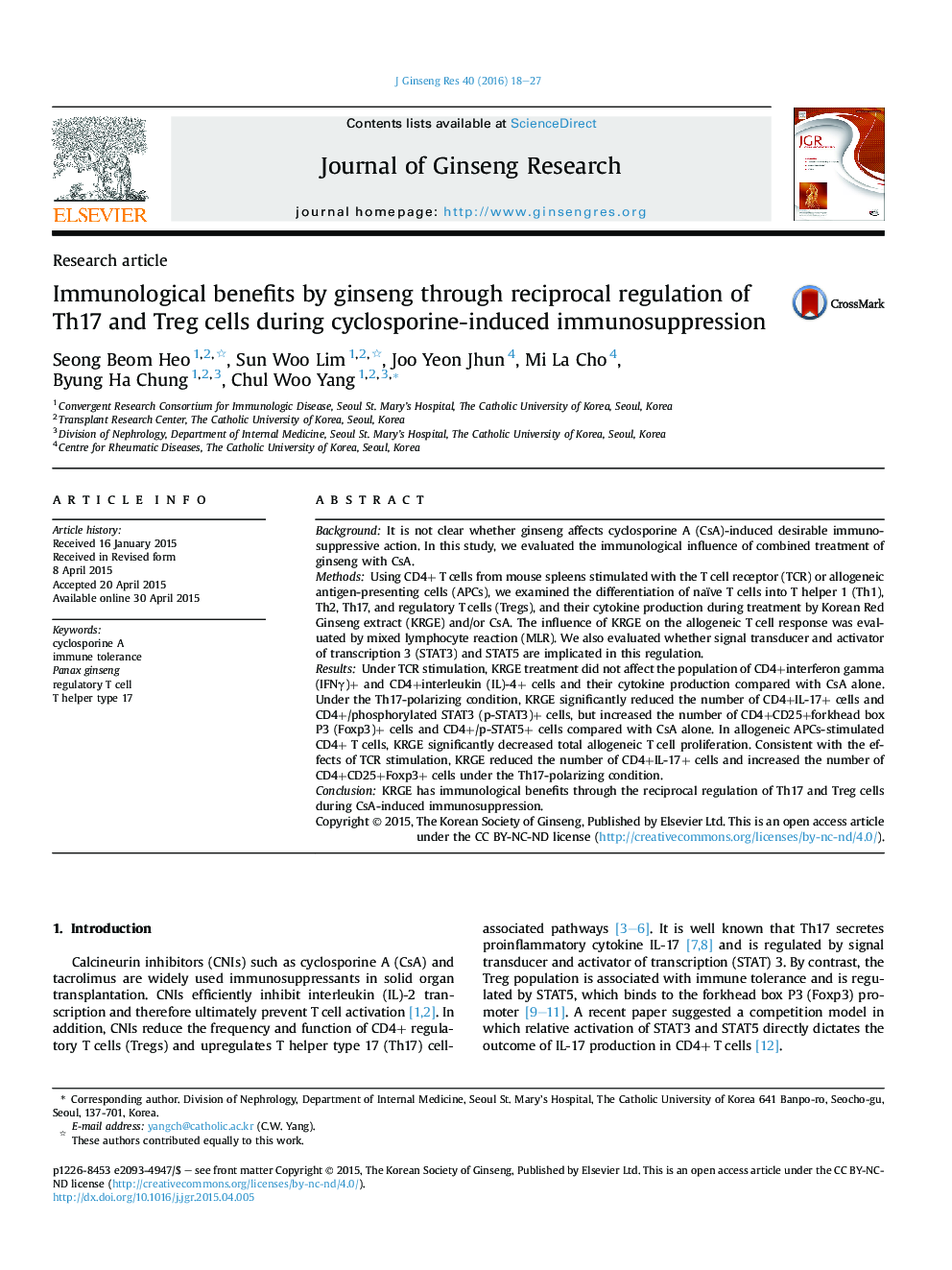| Article ID | Journal | Published Year | Pages | File Type |
|---|---|---|---|---|
| 3099310 | Journal of Ginseng Research | 2016 | 10 Pages |
BackgroundIt is not clear whether ginseng affects cyclosporine A (CsA)-induced desirable immunosuppressive action. In this study, we evaluated the immunological influence of combined treatment of ginseng with CsA.MethodsUsing CD4+ T cells from mouse spleens stimulated with the T cell receptor (TCR) or allogeneic antigen-presenting cells (APCs), we examined the differentiation of naïve T cells into T helper 1 (Th1), Th2, Th17, and regulatory T cells (Tregs), and their cytokine production during treatment by Korean Red Ginseng extract (KRGE) and/or CsA. The influence of KRGE on the allogeneic T cell response was evaluated by mixed lymphocyte reaction (MLR). We also evaluated whether signal transducer and activator of transcription 3 (STAT3) and STAT5 are implicated in this regulation.ResultsUnder TCR stimulation, KRGE treatment did not affect the population of CD4+interferon gamma (IFNγ)+ and CD4+interleukin (IL)-4+ cells and their cytokine production compared with CsA alone. Under the Th17-polarizing condition, KRGE significantly reduced the number of CD4+IL-17+ cells and CD4+/phosphorylated STAT3 (p-STAT3)+ cells, but increased the number of CD4+CD25+forkhead box P3 (Foxp3)+ cells and CD4+/p-STAT5+ cells compared with CsA alone. In allogeneic APCs-stimulated CD4+ T cells, KRGE significantly decreased total allogeneic T cell proliferation. Consistent with the effects of TCR stimulation, KRGE reduced the number of CD4+IL-17+ cells and increased the number of CD4+CD25+Foxp3+ cells under the Th17-polarizing condition.ConclusionKRGE has immunological benefits through the reciprocal regulation of Th17 and Treg cells during CsA-induced immunosuppression.
